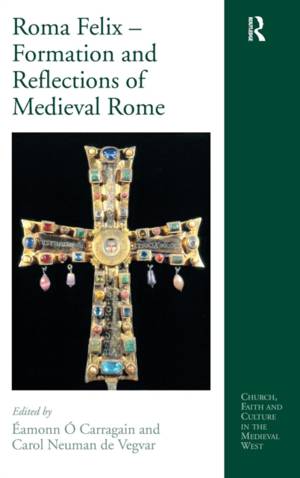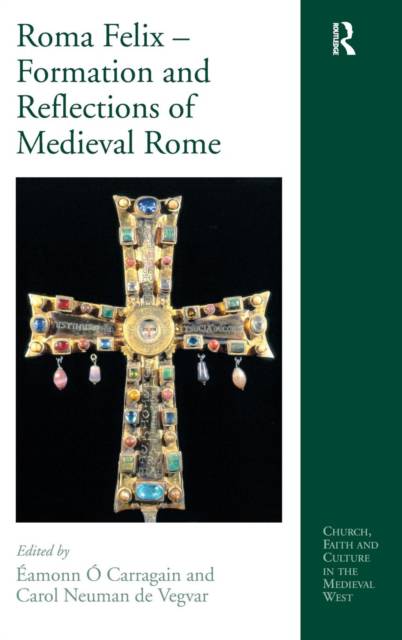
- Afhalen na 1 uur in een winkel met voorraad
- Gratis thuislevering in België vanaf € 30
- Ruim aanbod met 7 miljoen producten
- Afhalen na 1 uur in een winkel met voorraad
- Gratis thuislevering in België vanaf € 30
- Ruim aanbod met 7 miljoen producten
Zoeken
Roma Felix - Formation and Reflections of Medieval Rome
€ 305,45
+ 610 punten
Omschrijving
After the Roman empire fell, medieval Europe continued to be fascinated by Rome itself, the 'chief of cities'. Once the hub of empire, in the early medieval period Rome became an important centre for western Christianity, first of all as the place where Peter, Paul and many other important early Christian saints were martyred: their deaths for the Christian faith gave the city the appellation 'Roma Felix', 'Happy Rome'. But in Rome the history of the faith, embodied in the shrines of the martyrs, coexisted with the living centre of the western Latin church. Because Peter had been recognised by Christ as chief among the apostles and was understood to have been the first bishop of Rome, his successors were acknowledged as patriarchs of the West and Rome became the focal point around which the western Latin church came to be organised. This book explores ways in which Rome itself was preserved, envisioned, and transformed by its residents, and also by the many pilgrims who flocked to the shrines of the martyrs. It considers how northern European cultures (in particular, the Irish and English) imagined and imitated the city as they understood it. The fourteen articles presented here range from the fourth to the twelfth century and span the fields of history, art history, urban topography, liturgical studies and numismatics. They provide an introduction to current thinking about the ways in which medieval people responded to the material remains of Rome's classical and early Christian past, and to the associations of centrality, spirituality, and authority which the city of Rome embodied for the earlier Middle Ages. Acknowledgements for grants in aid of publication are due to the Publication Fund of the College of Arts, Humanities, Celtic Studies and Social Sciences at University College Cork; to the Publication Fund of the National University of Ireland, Dublin; and to the Office of the Provost, Ohio Wesleyan University.
Specificaties
Betrokkenen
- Uitgeverij:
Inhoud
- Aantal bladzijden:
- 368
- Taal:
- Engels
- Reeks:
Eigenschappen
- Productcode (EAN):
- 9780754660965
- Verschijningsdatum:
- 14/03/2008
- Uitvoering:
- Hardcover
- Formaat:
- Genaaid
- Afmetingen:
- 156 mm x 234 mm
- Gewicht:
- 693 g

Alleen bij Standaard Boekhandel
+ 610 punten op je klantenkaart van Standaard Boekhandel
Beoordelingen
We publiceren alleen reviews die voldoen aan de voorwaarden voor reviews. Bekijk onze voorwaarden voor reviews.






